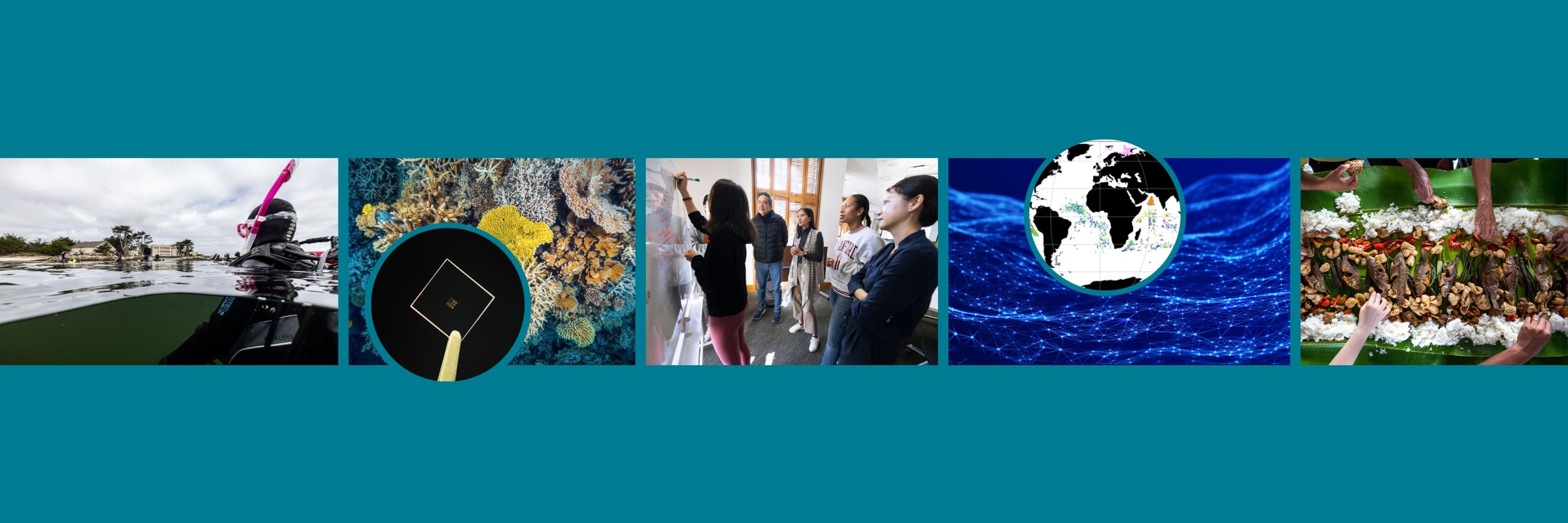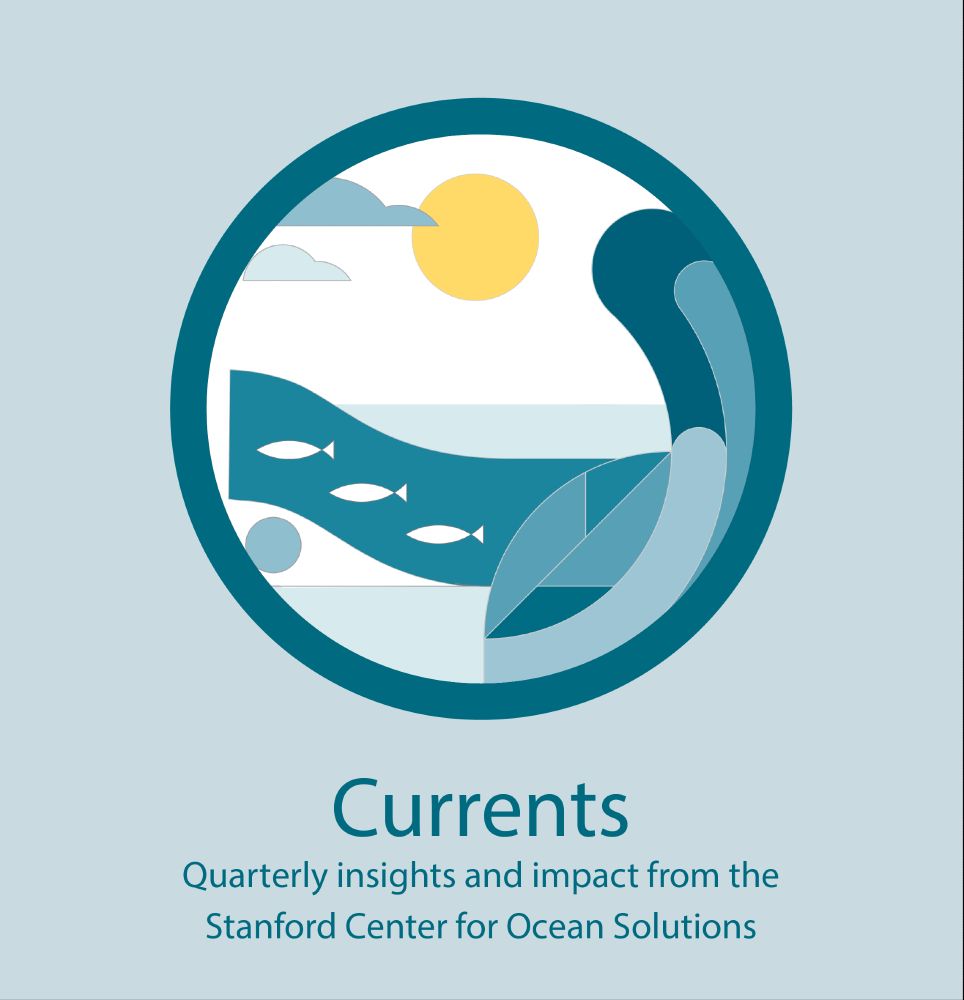
Based at @woods.stanford.edu in @stanforddoerr.bsky.social.

But many governments are working to change that. As #COP30 comes to a close, we’re sharing tools & resources to keep momentum up ➡️ bit.ly/bluefoodclimate

But many governments are working to change that. As #COP30 comes to a close, we’re sharing tools & resources to keep momentum up ➡️ bit.ly/bluefoodclimate
The Pacific Community commissioned a regional scientific assessment of how climate change will impact fisheries & aquaculture to prioritize climate action, ensuring Pacific perspectives are central to #COP30 ➡️ bit.ly/SPCassessment

The Pacific Community commissioned a regional scientific assessment of how climate change will impact fisheries & aquaculture to prioritize climate action, ensuring Pacific perspectives are central to #COP30 ➡️ bit.ly/SPCassessment

Partners 🙏 @worldfish.bsky.social @envdefensefund.bsky.social @fao.org @cgiar.org @unctad.bsky.social & more!


Partners 🙏 @worldfish.bsky.social @envdefensefund.bsky.social @fao.org @cgiar.org @unctad.bsky.social & more!

View research and resources ➡️ bit.ly/bluefoodclimate
Hear from changemakers who are securing sustainable blue foods 🎥 ▶️ bit.ly/bluefoodvideo

View research and resources ➡️ bit.ly/bluefoodclimate
Hear from changemakers who are securing sustainable blue foods 🎥 ▶️ bit.ly/bluefoodvideo
🌍 A call for applicants for the Blue Food Futures Fellowship
🌊 Research on actions at port that can help deter illegal fishing
🎣 Insights on how blue foods can support country climate goals
& more!
Read & subscribe ⤵️
mailchi.mp/oceansolutio...

🌍 A call for applicants for the Blue Food Futures Fellowship
🌊 Research on actions at port that can help deter illegal fishing
🎣 Insights on how blue foods can support country climate goals
& more!
Read & subscribe ⤵️
mailchi.mp/oceansolutio...

Share with your networks please!
@oceansolutions.stanford.edu

Share with your networks please!
@oceansolutions.stanford.edu
Listen to the podcast here: t.ly/f4H5B [email protected] @fao.org

Listen to the podcast here: t.ly/f4H5B [email protected] @fao.org
#BlueFoods are integral to these plans.
Learn why ➡️ stanford.io/4eJYBHx
Graphic credit: @fao.org

#BlueFoods are integral to these plans.
Learn why ➡️ stanford.io/4eJYBHx
Graphic credit: @fao.org
Her work on gender equity in #fisheries was recently honored at an award ceremony in Berlin ➡️ falling-walls.com/foundation/p...
Project ➡️ oceanrisk.earth/fact-sheets/

Her work on gender equity in #fisheries was recently honored at an award ceremony in Berlin ➡️ falling-walls.com/foundation/p...
Project ➡️ oceanrisk.earth/fact-sheets/
👉 Learn more: lnkd.in/dr2VZ-_s
👉 Apply here: lnkd.in/dHX2x7br
@oceansolutions.stanford.edu

👉 Learn more: lnkd.in/dr2VZ-_s
👉 Apply here: lnkd.in/dHX2x7br
@oceansolutions.stanford.edu
We invite early-career researchers to apply for the Blue Food Futures Fellowship, a 6-month, part-time research grant you can undertake from your home institution. Fellows receive mentorship & $10,000 in research funding.
Learn more & apply ➡️ bluefood.earth/fellowships/

We invite early-career researchers to apply for the Blue Food Futures Fellowship, a 6-month, part-time research grant you can undertake from your home institution. Fellows receive mentorship & $10,000 in research funding.
Learn more & apply ➡️ bluefood.earth/fellowships/
Subscribe to Currents for the latest insights and impact from the @oceansolutions.stanford.edu team and collaborators around the world.
Receive quarterly updates ➡️ bit.ly/CurrentsNews

Subscribe to Currents for the latest insights and impact from the @oceansolutions.stanford.edu team and collaborators around the world.
Receive quarterly updates ➡️ bit.ly/CurrentsNews
Research Scholar @ssfnicole.bsky.social spoke with Nutrition Insight about the WTO Agreement on Fisheries Subsidies, which entered into force last month.
Learn more about the impacts of subsidy cuts ➡️
www.nutritioninsight.com/news/wto-agr...

Research Scholar @ssfnicole.bsky.social spoke with Nutrition Insight about the WTO Agreement on Fisheries Subsidies, which entered into force last month.
Learn more about the impacts of subsidy cuts ➡️
www.nutritioninsight.com/news/wto-agr...
Explore the program: www.gafconference.org/program.htm
Learn more about the research: oceanrisk.earth/fact-sheets/
📷 Alli Cutting

Explore the program: www.gafconference.org/program.htm
Learn more about the research: oceanrisk.earth/fact-sheets/
📷 Alli Cutting

naturalcapitalproject.stanford.edu/news/corpora...

naturalcapitalproject.stanford.edu/news/corpora...
🔗 stanford.io/45LXlB2
@elizabethselig.bsky.social

🔗 stanford.io/45LXlB2
@elizabethselig.bsky.social
A @science.org Letter co-authored by Fiorenza Micheli & @ssfnicole.bsky.social calls for safe food to be recognized as a human right in the face of climate change.
www.science.org/doi/10.1126/...

A @science.org Letter co-authored by Fiorenza Micheli & @ssfnicole.bsky.social calls for safe food to be recognized as a human right in the face of climate change.
www.science.org/doi/10.1126/...
Read more: stanford.io/45LXlB2
Figure: Selig et al., 2025

Read more: stanford.io/45LXlB2
Figure: Selig et al., 2025
Read more from @oceansolutions.stanford.edu managing director @elizabethselig.bsky.social, who led the study. ⤵️
Read more from @oceansolutions.stanford.edu managing director @elizabethselig.bsky.social, who led the study. ⤵️
naturalcapitalproject.stanford.edu/news/corpora...

naturalcapitalproject.stanford.edu/news/corpora...

